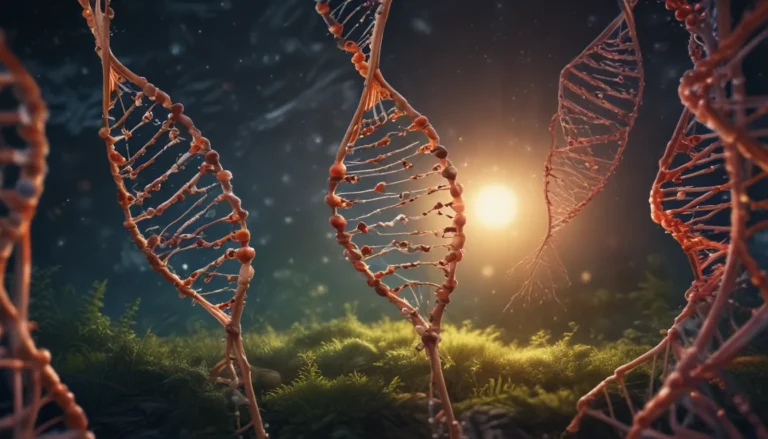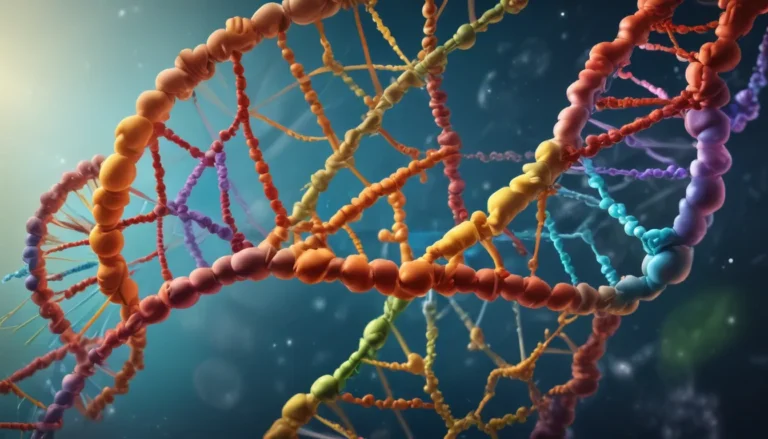A Note About Images: The images used in our articles are for illustration purposes only and may not exactly match the content. They are meant to engage readers, but the text should be relied upon for accurate information.
Have you ever wondered how living organisms, from simple creatures to complex beings like humans, learn and exhibit behaviors based on their experiences? The ability to acquire and modify behaviors through learning is a fascinating aspect of biology that sheds light on the adaptability and versatility of organisms. In this article, we will delve into 14 astounding facts about learned behavior, exploring the incredible capabilities of various species and unraveling the mechanisms behind this adaptive phenomenon.
Unveiling the Mysteries of Learning
Learning is a fundamental aspect of human behavior, allowing individuals to acquire knowledge, skills, and behaviors from their surroundings and interactions with others. Unlike innate behaviors that are present at birth, learned behaviors are acquired over time through external influences. Humans are not the only species capable of learning; many animals, including mammals, birds, and insects, also demonstrate varying degrees of learned behavior.
Exploring Different Types of Learning
Classical Conditioning:
One of the most well-known forms of learned behavior is classical conditioning, as demonstrated by Ivan Pavlov. This type of conditioning involves associating a neutral stimulus with a reflex response, leading to learned behaviors.
Operant Conditioning:
Another important mechanism of learning is operant conditioning, where behavior is reinforced or weakened based on the consequences that follow it. Rewards and punishments play a crucial role in shaping behaviors through operant conditioning.
Observational Learning:
Observational learning occurs when individuals acquire new behaviors by watching others and imitating their actions. This form of learning is particularly powerful in social species, where individuals learn from their peers.
Habituation:
Habituation is a type of learned behavior that involves a decrease in response to repeated stimuli. Through habituation, individuals become less sensitive to stimuli over time, highlighting the adaptability of learned behaviors.
The Adaptive Nature of Learned Behavior
Learned behaviors can be highly adaptive, helping organisms survive and thrive in their environments. By acquiring skills and knowledge through learning, individuals can improve their chances of finding food, avoiding predators, and successfully mating. Additionally, learned behaviors can be passed down through generations, contributing to the cultural transmission of information within a species.
The Influence of Environment and Culture
Culture plays a significant role in shaping learned behavior, with social norms, traditions, and customs being passed down through generations. Positive and negative reinforcement also contribute to the shaping of behaviors, as rewards and punishments influence the acquisition and modification of behaviors. The study of learned behavior has implications in various fields such as psychology, education, and animal behavior, providing valuable insights into human development and the behavior of other animals.
Unlocking the Potential of Learned Behavior
The process of learning and acquiring new behaviors can continue throughout an individual’s lifespan, showcasing the plasticity of learned behavior. By understanding the mechanisms behind learned behavior, we can gain a deeper appreciation for the adaptability and flexibility of living organisms. Whether it’s through conscious awareness, self-reflection, or deliberate practice, humans have the ability to change their learned behaviors and adapt to new environments.
Conclusion: Embracing the Wonders of Learned Behavior
Learned behavior is a captivating aspect of biology that highlights the remarkable abilities of organisms to adapt and succeed in their environments. From classical conditioning to observational learning, the world of learned behavior is rich and intricate, offering insights into the complexities of the natural world. By unlocking the secrets of learned behavior, we can gain a better understanding of ourselves and the fascinating behaviors exhibited by other living beings.
FAQs: Answering Your Burning Questions
-
What is learned behavior?
Learned behavior refers to the acquisition of new behaviors or modifications of existing behaviors through experience or environmental stimuli. -
Are all behaviors learned?
No, not all behaviors are learned. Some behaviors, called innate behaviors, are genetically programmed and do not require learning. -
How do animals learn?
Animals can learn through mechanisms such as classical conditioning, operant conditioning, observation, and trial-and-error learning. -
Can humans change their learned behaviors?
Yes, humans have the ability to change their learned behaviors through conscious awareness, self-reflection, and deliberate practice. -
Is learned behavior limited to animals?
No, learned behavior is not limited to animals. Humans, as part of the animal kingdom, also exhibit learned behaviors. -
Can learned behaviors be passed on to offspring?
In some cases, learned behaviors can be passed on to offspring through social learning, where individuals observe and imitate behaviors. -
Are all learned behaviors beneficial?
Not all learned behaviors are beneficial; some may be maladaptive or counterproductive in certain situations. -
Can learned behaviors be unlearned?
Yes, learned behaviors can be unlearned through extinction, where the learned association is gradually weakened or eliminated. -
Can learned behavior be a form of evolution?
Learned behavior can contribute to evolution by enabling organisms to adapt to changing environments and increase their chances of survival. -
Do all individuals exhibit the same learned behaviors?
No, factors like individual experiences and environmental influences can result in variations in learned behaviors within a species. -
Are learned behaviors permanent?
Learned behaviors can be relatively permanent but are also subject to modification or erasure through new learning experiences. -
Can learned behaviors be instinctual?
While learned behaviors are typically acquired through experience, some behaviors may have innate and learned components. -
Can learned behaviors be observed in plants?
Plants can exhibit adaptive responses to environmental stimuli, displaying a form of learned behavior. -
Can learned behaviors be used in animal training?
Learned behaviors form the basis of animal training, where desired behaviors are reinforced, and undesirable behaviors are discouraged.
Learned behavior is a fascinating area of study that sheds light on the complexities of the natural world. By exploring the mechanisms behind how organisms learn and adapt, we can gain valuable insights into human behavior, animal cognition, and the intricacies of the living world. Join us on this journey of discovery as we unravel the wonders of learned behavior and its significance in shaping the behaviors of diverse species.






